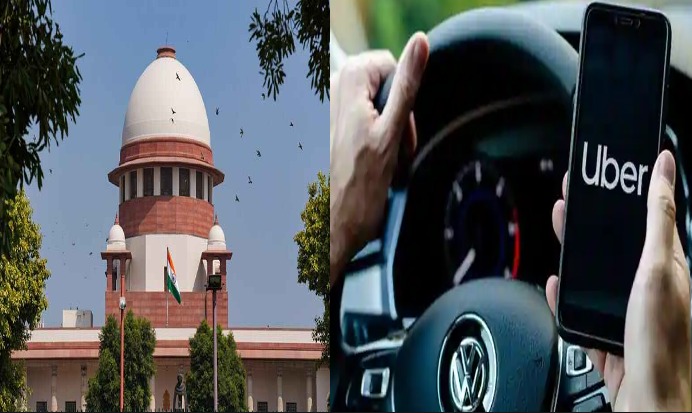
The Supreme Court ruled on Monday that a cab aggregator cannot operate without a license and therefore, ordered Uber to apply for a license to operate in the state of Maharashtra.
A bench led by CJI DY Chandrachud ruled that an earlier interim order issued by the Supreme Court allowing Uber to operate in the state would not stand because an aggregator cannot operate without a license. Therefore, the Court ordered Uber to file for a license by March 6, 2023.
The Court was hearing Special Leave Petition (SLP) filed by Uber challenging a Bombay High Court order directing it to apply for an aggregator license in the state of Maharashtra in accordance with the Central Government’s Motor Vehicles Aggregator (MVA) Guidelines of 2020.
Uber claimed that the conditions imposed by the Central Government guidelines were impractical.
The State of Maharashtra had previously informed the High Court that its draft guidelines for the issuance of aggregator licenses, known as the Maharashtra Regulation of Aggregator Rules, had been drafted but had yet to be approved by the appropriate authorities.
The High Court ruled that the Central Government’s guidelines would stand and be binding on the aggregators while the State rules were being considered. The Supreme Court ordered a status quo in the case in April 2022.
The State of Maharashtra informed the Court on Monday that no coercive action was being taken against Uber despite the fact that its license had not been renewed, since it had updated its license immediately following the Court’s interim order.
The Court ruled that Uber could not continue to operate under the interim order and ordered the company to apply for a license or follow the guidelines.
The bench also suggested that Uber could submit a representation to the appropriate authorities if the conditions imposed were impracticable.
The Court ordered, “Meanwhile, Uber can submit a representation demonstrating the unworkability of some of the conditions, and the State can take a call on the same representation and make a decision so that pending finalisation of rules, a decision is taken regarding grant of license under MVA.”
The Court also ordered the State to develop a policy that incorporates the framework of the MVA guidelines as soon as possible.




